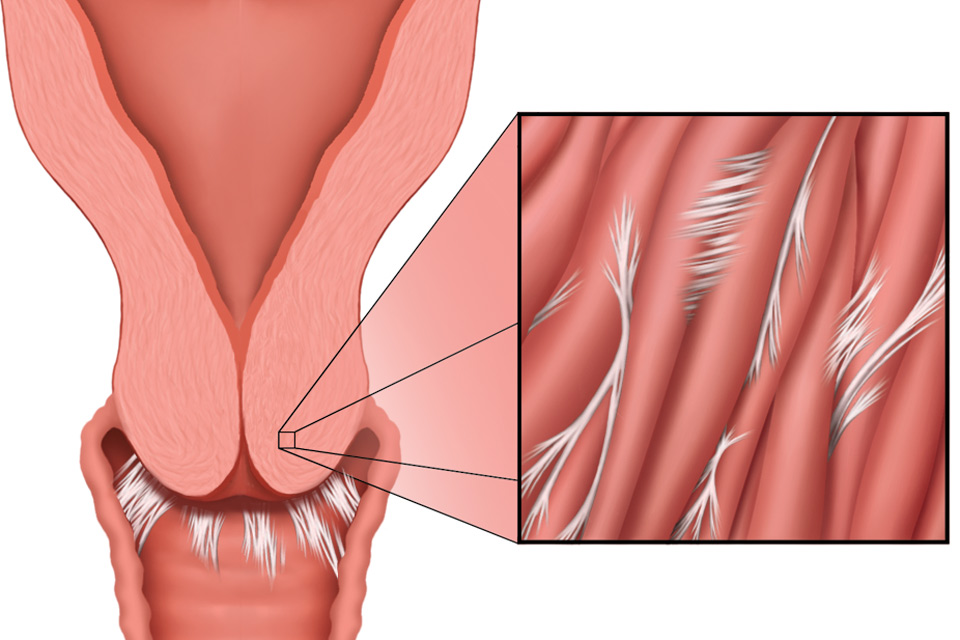Is Painful Sex (Dyspareunia) Common?
Did you know that dyspareunia is one of the most prevalent conditions among women? Sixty percent of women in the U.S. report having intercourse pain at some point in their lives.

If there is one thing we want our readers to take away, it is that intercourse pain is more common than you may think and there is no need to feel embarrassed. Acknowledging the problem and being open with your physician about it are important first steps to feeling better — both physically and mentally.
Hear a Former Patient Discuss Treatment for Dyspareunia
The different kinds of dyspareunia
There are many different causes of dyspareunia, resulting in different levels and kinds of pain. Providing a concrete description of where and when the pain occurs, and what it feels like, will not only help your physician determine the appropriate treatment plan but also help you feel more at ease when discussing the issue.
To help you accurately describe the pain, here is a list of commonly used terms to describe the different sensations you may be experiencing:
|
|
|
|
There are several locations where the pain may occur:
|
|
|
|
Speaking with your doctor

There you are — sitting in the waiting room, wondering the entire time if, how, and when to bring up the pain you have been experiencing during intercourse. Sound familiar? You may be telling yourself “It will go away, it’s nothing” or “I’m too embarrassed.” The doctor finally walks through the door and sits on that oddly short stool. Now is the time — talk to her about your pain!
You’ve already done the hard part – you have accepted the fact that you are dealing with a problem and begun educating yourself on what to do about it. You just learned how to describe the type of pain you are experiencing, narrowing in on where in your body the pain occurs. Your doctor has seen it all, so you will not shock or surprise her when discussing intercourse pain.
One of the main reasons so many cases go untreated is that women feel uncomfortable or embarrassed speaking with their doctor about this very private issue. Instead of worrying about having the conversation, imagine going home knowing that you have taken the first steps toward resolving the problem. So, if you are feeling anxious about this conversation with your doctor, say to yourself, “I am one of the millions of women suffering from dyspareunia and I will get the help I deserve.”
Dyspareunia Symptoms
The following are the most common symptoms:
|
|
However, dyspareunia itself can be a symptom; painful intercourse can be an indicator of other issues in a woman’s body that require medical attention – addressed in the following section.
Dyspareunia Causes
The type of pain you experience with intercourse can help your physician determine the underlying cause.
Causes of superficial dyspareunia
|
|
Causes of deep pain
|
|

Dyspareunia Treatments
Treatments for dyspareunia – from estrogen supplements to vaginal relaxation — vary depending on the underlying cause of the pain. Treatments for painful intercourse due to adhesion-related conditions, such as endometriosis and post-surgical pain, are limited. Adhesions are bands of internal scar tissue that form as part of the body’s natural healing process after surgery, infection, inflammation, or other type of trauma. Traditionally, adhesions have been addressed through surgical removal. However, research has shown that roughly 90 percent of patients who undergo pelvic surgery will develop more adhesions after the procedure (Liakakos et al., 2001), making it likely that pain with intercourse with persist. As a result, a growing number of women are seeking alternative treatment options.
Manual physical therapy can be an effective treatment for intercourse pain, providing relief without the need for medications or invasive surgical procedures. In addition to reducing pain, the Clear Passage Approach has been shown to dramatically increase sexual function in women. Our first sexual function study was published in Medscape General Medicine (Wurn et al., 2004b), showing that our work decreased or eliminated intercourse pain in 96 percent of participants. Learn more about our success treating dyspareunia.



